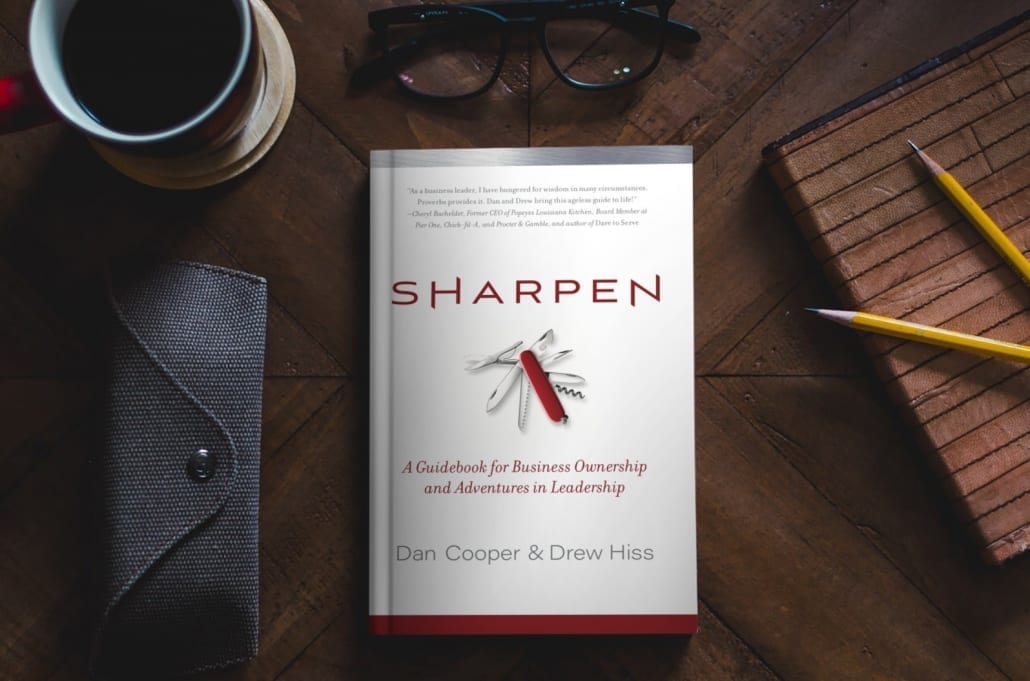Why You Need Both Knowledge and Wisdom
If just being the smartest person in the room was enough, then no smart person would ever fail.
But failure lurks around every corner for all of us. It’s hard to believe in our youth, but time reveals how little ‘d’ democratic failure can be. It stalks all of us sometimes, and it finds us often in life unless we figure out how to thrive and how to avoid the land mines.
It takes wisdom to figure that out. And though a handful of us get wisdom early in life, most of us acquire it from a struggle or two or ten. Many times, these difficult moments are of our own making. As we successfully work through those trying moments, wisdom imprints itself and becomes a guard rail against ever failing like that again, whatever it may be. There is safety in wisdom.
When we studied wisdom for our new book, we found many interesting qualities that it has versus knowledge. For example; Knowledge may change as times change, right? What we learned in college may not apply anymore in the current business environment. New technologies and new leadership styles are needed to succeed and win. Those changes are moving at an ever-increasing pace, and so knowledge can be quite fluid. It requires us to chase it and try to catch it to keep from falling behind.
Wisdom, on the other hand, turns out to be static and true in all generations. Get wisdom and you can use it for a lifetime.
So, how do you get knowledge and wisdom?
The knowledge part is easy. Your childhood and young life are filled to the brim with school of one kind or another. You are taught by people who know more than you and who most likely care about you. You go to college and we are surrounded by doers and achievers who understand the competitiveness of the world and how to win by outdoing other doers. You listen. You make notes. You read books. You get knowledge.
Then, you leave college, go to work, and use your knowledge to start making money, usually without a great deal of wisdom and foresight. For example, nobody in college told you that money and power can be dangerous if you let them become your primary focus. See also ENRON. A room full of the best and the brightest decided to take their chances and ignore the sirens going off in their heads. The carnage of that decision was strewn across the media. Billions of dollars lost. Suicides and jail time. Bad things tend to happen when we only have knowledge without wisdom.
Our research regarding wisdom took us back to purportedly the wisest man in history, Solomon. As we studied his life and teachings we wondered over and over again why he is not mentioned and written about more often. He was a smart businessman. He was historically wealthy, probably in real money the richest individual ever on this planet.
If you remember the story, Solomon was offered anything he wanted by God himself. He didn’t choose money or fame. He chose wisdom. And, interestingly, the other things he didn’t ask for just came as part of the deal with that request. He got very famous and rich. And wise.
As we read through the book of Proverbs that he penned we found a lot of wisdom, not surprisingly. Though written millennia ago, most of it sounds like something you would say this very day to someone you were counseling to keep them from making a big and costly mistake.
For example, be careful what kind of company you keep. Bad company corrupts good morals. Did your mother ever tell you that? I’ll bet she did, and she was right. Groupthink is a real thing. It’s why gangs can get their members to kill other gang members and rot in jail for it. It’s why a terrorist can be talked into blowing themselves up for a cause. Bad decisions don’t usually come upon us like a tsunami. They happen by inches. Hang out with people who consistently tell you a lie and pretty soon you start believing it. The business pages are filled with cautionary tales about this one piece of wisdom alone.
Solomon talked about money corrupting us, too. He understood firsthand the perils of great wealth and the pitfalls that had to be avoided. Bottom line: It’s OK to have money. Don’t let it have you.
And, the same can be said for power. Being in charge is an opportunity to do good, to serve others in your organization and community. It’s not there for you to use and take advantage of for your own gain. People don’t follow narcissistic leaders unless they are forced to. But they will follow a servant leader into hell and back every time.
Get the picture? We spend a lot of time and money getting educated and acquiring knowledge. We should spend at least that much effort acquiring wisdom because together the two are the jet fuel that leads to a great and profitable life.
About the Authors

Drew founded Acumen in late in 2015. Acumen is a catalytic iron-sharpening-iron environment forged from the fiery furnace of entrepreneurial battle, marketplace survival and integration of the timeless wisdom of the ages.

Today, he is the President and partner of Acumen, an accelerator community experience built for CEOs and Owners of strong and growing companies. Dan is also a certified Executive Coach credentialed through the International Coaching Federation.
Dan and Drew are the authors of a new book, Sharpen: A Guidebook for Business Ownership and Adventures in Leadership.












Leave a Reply
Want to join the discussion?Feel free to contribute!